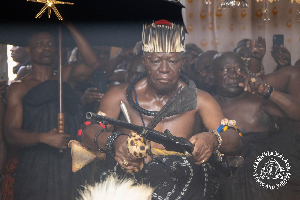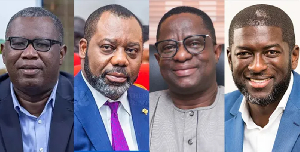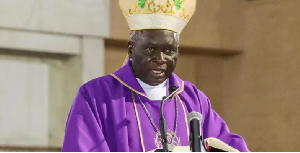It is almost three months since the ban on social and religious gathering, as a measure to curb the coronavirus, came into force. Since then churches have been forced to resort to social media, particularly face book, to stream their services so they can still reach their members with the word of God.
If truth should be told as it is, online streaming of church service is not the same as members congregating at one place for fellowship. Further, it is turning out to be a more expensive way of reaching to members. Apart from the warmth that has been missing, there is also the issue of cost. It is relatively more expensive to do ministry online.
Churches, as well as members have to get the gadgets and the data; and even with all that there is no guarantee that church members will follow the service.
These challenges notwithstanding, social media has been a blessing for churches in this period of the ban.
As the month of May ends in a few days, and the period of the last ban expiring, the question many are asking is “will the ban be lifted or extended”?
Within the last month, the leaders of the Christian Church put together a proposal on how the churches will manage to control the crises should the government ease the ban.
I think that the Christian leaders ought to be commended for being proactive or better still, for taking a step of faith. The reasons that have been put forward for the ban to be lifted are quite thought provoking.
It has been argued that the church is more organised and more disciplined and so will do a better job than the markets. Secondly, there is the view that the ban, occasioned by the virus, is biting hard the churches as far as their finances are concerned.
Whether one agrees or not, the churches have staff to pay and its regular source of income, namely tithes and offering, has suffered seriously for obvious reasons. The argument has also been made that other countries are easing these bans and so why not Ghana?
Finally, some of those who are pushing for the ban to be eased contend that since the virus has come to stay, we should learn how to still have ‘church’, as we and still manage the virus.
On the other hand, there is a voice calling for the ban to be extended. The extension, according to the proponents of this view, is one of our best measures in curbing the spread of the virus.
The reason they give is that many people throw away their sense of reasoning when they ‘enter church’ and it is unpredictable what people might do in the name of faith. They have further argued that people can still be in their homes and practice fellowship. Some of these proponents have gone for the jugular on church leaders by describing them as being greedy and wanting opportunity to continue milking their members.
It must be a very difficult time to be the President of nation that is plagued with a pandemic such as COVID-19, not to mention that this is an election year! If the virus has come to stay, then for how long will these restrictions be in force? The hard truth is that there is no vaccine for the virus and we do not know when the world may be blessed with one.
This leaves us with only one option: we must learn to manage the cases and live with the virus. Should we wait until we get a vaccine before the ban is lifted? Should we begin to have a conversation about how the church can competently handle their members so the spread does not become more serious than it is presently?
The government, given the facts available to him, has to make that decision. If he decides to extend the ban, the church must embrace that decision and continue praying and reaching its members with technology.
If the government decides to lift the ban, the church must embrace it and adopt the all the necessary safety protocols in order not to exacerbate the situation.
Until then, it remains the decision of the President; and like they say, “Uneasy lies the head that wears the crown.”
Opinions of Thursday, 28 May 2020
Columnist: Rev. TR Bosomtwe



















